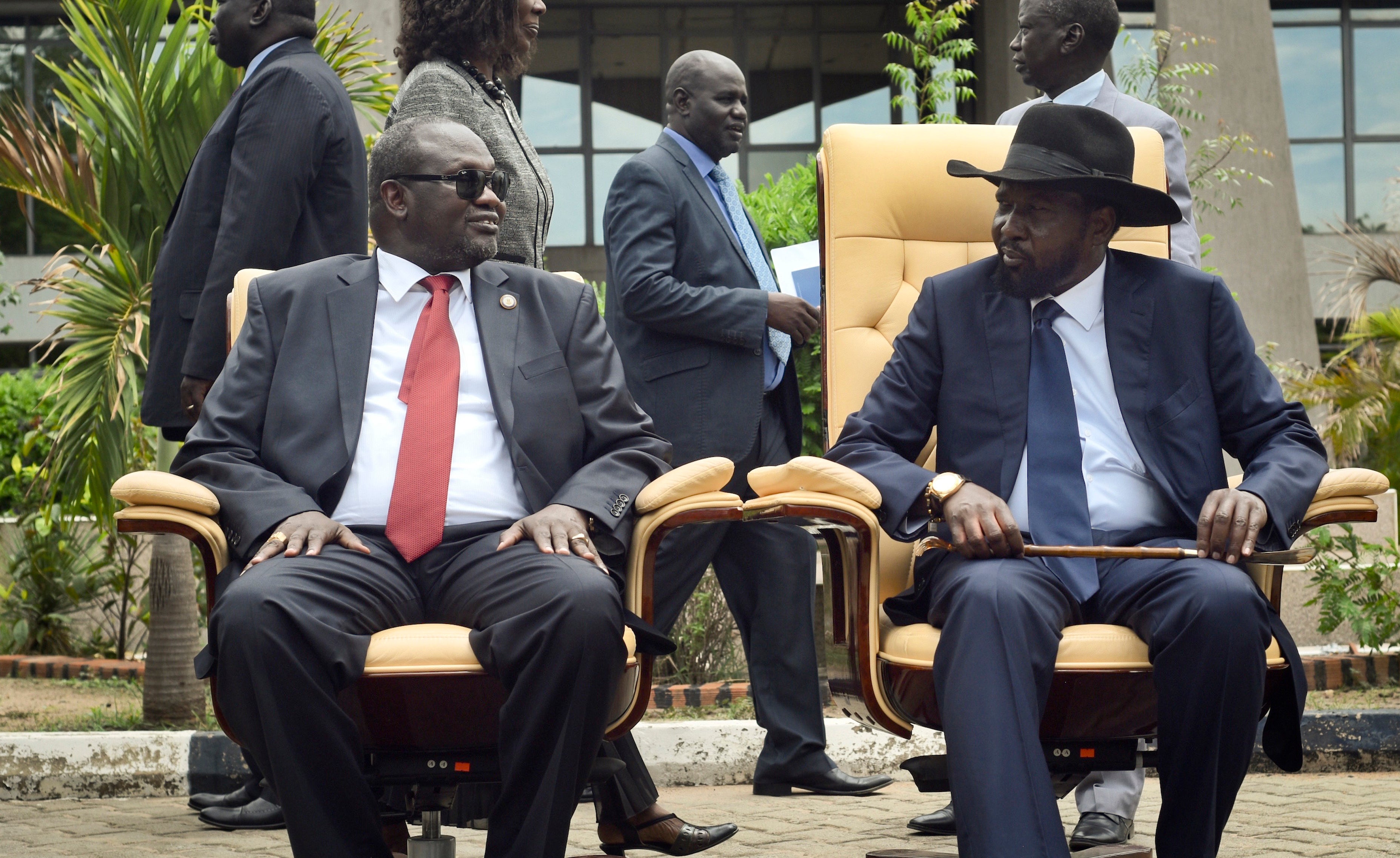South Sudan again delays its 1st election, until late 2024
Parties to the peace deal ending South Sudan’s devastating civil war have again delayed the country’s first elections since independence by extending the transitional period by two years

Your support helps us to tell the story
From reproductive rights to climate change to Big Tech, The Independent is on the ground when the story is developing. Whether it's investigating the financials of Elon Musk's pro-Trump PAC or producing our latest documentary, 'The A Word', which shines a light on the American women fighting for reproductive rights, we know how important it is to parse out the facts from the messaging.
At such a critical moment in US history, we need reporters on the ground. Your donation allows us to keep sending journalists to speak to both sides of the story.
The Independent is trusted by Americans across the entire political spectrum. And unlike many other quality news outlets, we choose not to lock Americans out of our reporting and analysis with paywalls. We believe quality journalism should be available to everyone, paid for by those who can afford it.
Your support makes all the difference.Parties to the peace deal ending South Sudan’s devastating civil war have again delayed the country's first elections since independence by extending the transitional period by two years. The vote meant for early next year has been pushed to December 2024.
The United States, Britain and Norway shortly before Thursday’s announcement in the capital, Juba, warned in a letter to President Salva Kiir they wouldn’t send their top diplomats because they believed that not all parties to the peace deal had been consulted. The countries are known as the Troika for South Sudan.
The new plan “must demonstrate how another extension would differ from the previous ones and include steps for clear progress in setting up the institutions and mechanisms necessary to hold elections,” said the letter seen by The Associated Press.
In explaining the latest delay, South Sudan’s president said he wanted to avoid creating conditions for more bloodshed.
“I am not extending the transitional period because I want to stay in the government longer. I do not want to rush you into an election that will take us back to war,” said Kiir, who has led South Sudan since its independence from Sudan in 2011. He called on holdout groups to join him in implementing the peace process.
Kiir and opposition groups signed the peace agreement in 2018 ending five years of civil war that killed hundreds of thousands of people. But the deal’s provisions, including the formation of a national unified army, remain largely unimplemented.
Kiir’s longtime rival and vice president, Riek Machar, said they had no choice but to extend the transition period to ensure the deal’s implementation.
“We need a political space. Without political space, we can’t" implement the deal, he added, appealing for room for opposition parties to participate freely.